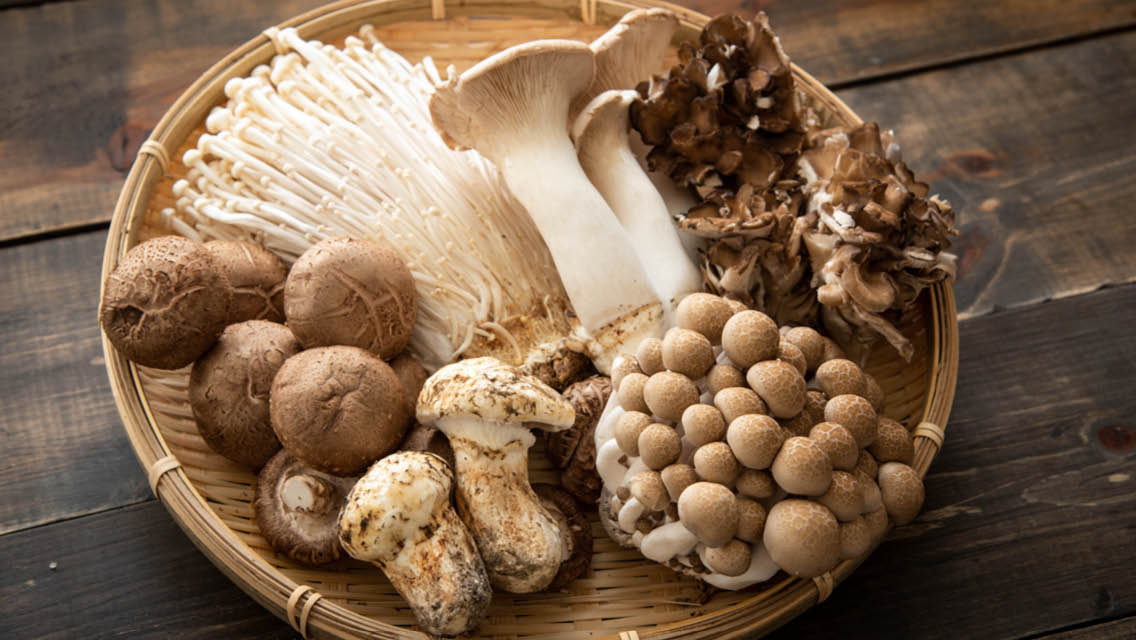The way mushrooms are cultivated affects their quality, so finding good mushroom supplements can be a challenge. Keep these five things in mind when you’re shopping.
1) Know the parts of a mushroom.
What we often think of as a mushroom is actually the fruiting body of the fungus, which grows from the mycelium, the rootlike system that develops within wood, soil, or other materials. Picture the mycelium as a giant, far-reaching underground tree and mushrooms as the fruit. Fruiting bodies and mycelium both offer plenty of health benefits, says mycologist Christopher Hobbs — but in some cases, the fruiting body will contain less starch and provide more medicinal benefits.
2) Check how it’s grown.
In the wild, mushrooms grow on a variety of materials, including wood, duff, and soil. Yet most large-scale commercial growers grow mushrooms on sterile grain, which is cheaper and faster. If the harvest happens before fruiting bodies appear, the grain becomes a significant part of the product.
“You’ve got to take the extra time to ensure the final product is majority mushroom, not grain,” Hobbs says. (He recommends the brands Real Mushrooms and Mushroom Harvest.)
Others believe grain doesn’t belong in mushroom supplements, period, and that only mushrooms cultivated on wood are worthwhile. “People who are investing their money in supplements want mushrooms, not grain,” says integrative cancer-care expert Nalini Chilkov, LAc, OMD. She recommends Mushroom Science and Natura Health — specifically, a Natura Health product called Mushroom Synergy.
3) Look for “extracted” or “heat treated.”
A mushroom’s medicinal compounds must be extracted in some way before they become bioavailable. For instance, heat can release beta-glucans — so a quick sauté of that lion’s mane is the way to go.
Other mushrooms, like reishi, contain alcohol-soluble compounds, such as phenolics and terpenes: These require an alcohol-based extraction process. If a mushroom product has been extracted with alcohol, it will be noted on the ingredient panel.
4) Buy organic.
Mushrooms have permeable flesh, similar to strawberries. This makes them sensitive to pesticides, herbicides, heavy metals, and other contaminants.
“As nature’s decomposers, mushrooms will bioaccumulate chemicals in their environment,” says Shawn Dunn, cofounder of Shroomworks, a California-based mushroom company. Look for organic and third-party-tested products. These labels mean the supplement went through an additional layer of testing for purity and accuracy.
5) Go local.
Countries have different production and labeling standards, so mushroom supplements made overseas may be more likely to be contaminated with chemicals or heavy metals. To increase the odds that you’re getting a mushroom supplement that’s accurately labeled, safe, and effective, Hobbs recommends choosing products made from mushrooms grown in the United States.





This Post Has 0 Comments